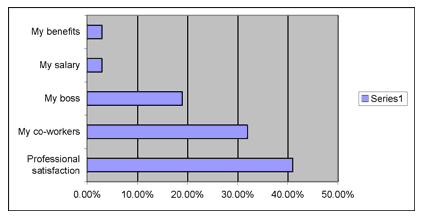By AMA Staff
When we’re counting our blessings this Thanksgiving, work will probably not make the list for most of us. If we think about it at all, the only association we’ll draw between Thanksgiving and the workplace is to be thankful for the time off that the holiday allows. Certainly, compared to the far more important things that we’ll give thanks for—our families and friends, our health, our overall well being—work seems like a distant part of our lives.
Yet it’s worth noting that the origins of Thanksgiving are rooted in work. In its earliest incarnations, it was a day to celebrate the hard-earned bounty of the harvest. And the very first Thanksgiving feast in America came about when the Pilgrims wanted to express their gratitude to the Wampanoag Native Americans who had helped them survive their first year in their new home. So in a very real sense, the tradition of Thanksgiving began as a way of celebrating the timeless workplace values of hard work and cooperation.
There’s no better time, then, to consider what we’re grateful for at work. We put the question to Performance & Profits readers, and here’s what they said made them most thankful at work:

First on the list was “the professional satisfaction it provides me.” This is an appropriate topic for Thanksgiving, since the satisfaction of a job well done is a sentiment that the hard-working Pilgrims would surely have identified with. There is perhaps no more lasting source of pleasure than the inner fulfillment that comes from the feeling that one has done one’s best.
It comes as no surprise that “my co-workers” came in second. Personal relationships play an important role in our happiness at work. Indeed, for many of us, the workplace is where we form some of our closest and most enduring friendships. Having friends at work helps us deal with job stress and gives us a wider perspective on our lives inside and outside the office. Interoffice friendships are beneficial from the organization’s perspective as well, according to Tom Rath. In his book Vital Friends (Gallup Press, 2006), Rath finds that people who have a best friend in their workplace are seven times more likely to be engaged in their work, and they’re also more likely to have satisfied customers and to innovate and share new ideas.
Based on years of research by Gallup, Vital Friends also reports that when asked if they would rather have a 10% pay raise or a close friend at work, respondents overwhelmingly chose the close friend. That’s a powerful testimonial to the priority that we place on friendship in the workplace. Yet how many workplaces encourage employees to befriend each other, aside from throwing the occasional obligatory office party?
Of course, there’s really only so much an organization can do to promote friendship in the workplace; ultimately, people become friends for reasons of their own. Many workplaces also are reluctant to encourage personal relationships—even nonromantic ones—for fear of the messy situations that such relationships can provoke.
Yet it may be worthwhile for organizations to take that risk, for friendships can facilitate professional development and learning, as the Human Resource Institute’s Jo Averill-Snell points out in her article "The Virtues of Informal Learning." They can also help reduce turnover and boost productivity, according to Rath.
“My boss” ranked third on the list. Almost as important as feeling good about the kind of work we do is feeling good about the person we do it for. Contrary to popular opinion, it doesn’t take much to earn the thanks of the people who report to you—show them that you’re grateful for their efforts, and they’ll repay the gratitude.
On the other end of the scale, it’s both challenging and encouraging to find that among the choices, “my salary” ranked lowest. Challenging, because salary is the easiest tool to use for organizations who are trying to increase their employee’s satisfaction and earn their gratitude. Encouraging, because if money was the only thing that secured gratitude, work would be hollow.
As our poll illustrates, we come to work for much more profound reasons than a paycheck—a point for which we should all be thankful. Are you unsatisfied with your job or your role at work? Learn how to find your passion and be happy at work with this free AMA webcast.
About The Author(s)
American Management Association is a world leader in professional development, advancing the skills of individuals to drive business success. AMA’s approach to improving performance combines experiential learning—“learning through doing”—with opportunities for ongoing professional growth at every step of one’s career journey. AMA supports the goals of individuals and organizations through a complete range of products and services, including seminars, Webcasts and podcasts, conferences, corporate and government solutions, business books and research.